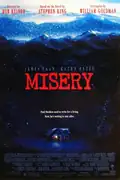Where to watch
This film is not yet available anywhere. Click the button below to recommend it to Filmelier+.
A novelist attends a trial to write a modern-day adaptation of Medea but faces unexpected obstacles.
Trailer
Why watch the movie Saint Omer?
Hint: In a race across the US heartland, a red car discovers the true meaning of friendship.

Think you can guess today's movie? 🤔

One hint, 6 chances, and a new movie to guess every day
Follows Rama, a novelist who attends the trial of Laurence Coly at the Saint-Omer Criminal Court to use her story to write a modern-day adaptation of the ancient myth of Medea, but things don’t go as expected.










""Saint Omer" is a thought-provoking film directed by Alice Diop that follows Rama, a novelist attending the trial of Laurence Coly at the Saint-Omer Criminal Court. Rama intends to use the story of Coly to write a modern-day adaptation of the ancient myth of Medea, but things don't go as expected. The storyline is gripping and keeps the audience engaged throughout the film. The film's cinematography is impressive, with the camera work capturing the essence of the story and the characters' emotions. The acting performances are also noteworthy, with the cast delivering powerful and convincing performances. Diop's direction is commendable, highlighting the complexities of the justice system and the struggles of the characters. The film's themes of betrayal, revenge, and justice are explored in a nuanced and thought-provoking manner. Overall, "Saint Omer" is a well-crafted film that offers a unique perspective on the justice system and the human condition. It is a must-watch for anyone interested in thought-provoking cinema. "